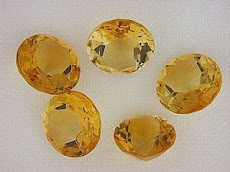Bipolar II disorder is typically defined as rapid mood cycling with episodes of hypomania and
depression. Bipolar II disorder does not occur with psychotic or hallucinating symptoms. Additionally, hypomania is defined as a milder form of mania, in which the patient has a period of heightened happiness or elation. Depression with bipolar II patients is often more severe than in patients with bipolar I disorder. Suicide, suicide threats, suicide attempts, and thoughts of suicide are much more common in bipolar II patients than bipolar I patients.A diagnosis of bipolar II disorder is typically made when the patient has had one or more major depressive episodes, at least one hypomania episode, no manic episodes, and when no other reason for symptoms can be found. Symptoms of depression with bipolar II disorder include decreased energy, unexplained weight changes, feelings of despair, increased irritability, and uncontrollable crying. Symptoms of chinese medicine include sleeplessness, racing thoughts, distractibility, excess energy, and rash judgements. These symptoms are similar to mania, but are less severe.
Treatment of bipolar II disorder typically involves a combination of medication and therapy or counselling. Medications typically prescribed for treatment of bipolar include anti-depressants such as Celexa, as well as mood stabilizers such as Topomax. Mood stabilizers are vitally important in treatment of bipolar disorders, because antidepressants alone can cause the patient to enter into a manic or hypomania episode.
Bipolar II disorder is actually often misdiagnosed as clinical depression. This is due to the fact that depression is most often present, and hypomania episodes rarely come to light in therapy sessions due to their upbeat nature. It is typically through treatment by antidepressants that the correct diagnosis because the patient will spin into a hypomania episode almost immediately if the diagnosis should be bipolar II disorder rather than clinical depression.Counselling or therapy treatment options for bipolar II disorder may include traditional counselling methods, discussion of triggers and life style changes that can lessen the of episodes, and cognitive behavioural therapy. Patients with a mild case of bipolar II disorder may benefit from counselling or therapy alone without medication. However, this is less common with bipolar II disorder than with bipolar I disorder, due to the nature of the severity of the depressive states.
Subscribe to:
Post Comments (Atom)


No comments:
Post a Comment